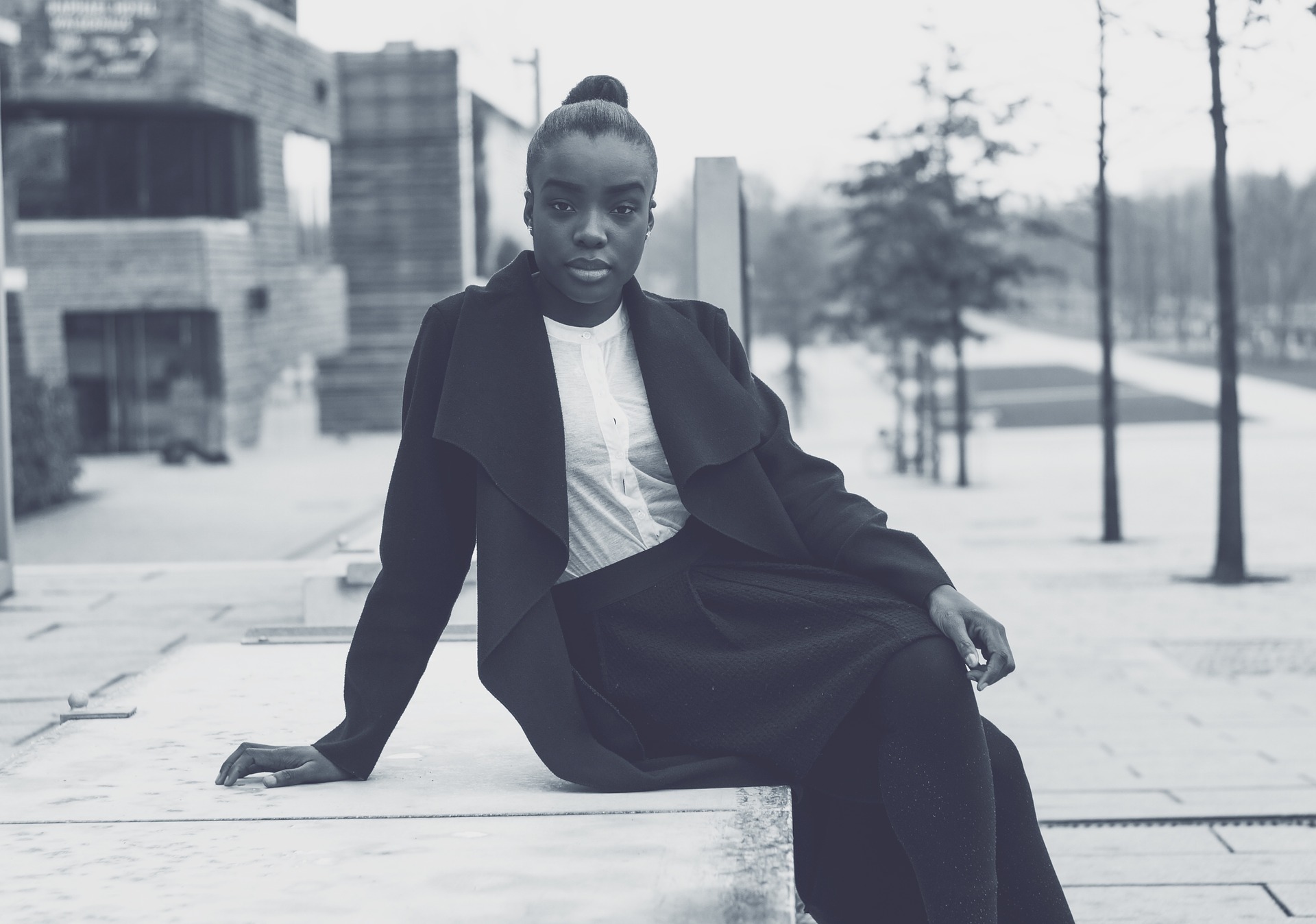The culture of colourism continues to be a largely taboo subject, and we are looking to encourage this conversation. In essence, colourism is the prejudice or discrimination against individuals with dark skin tones, typically among the same ethnic or racial group.
Most prevalent in the beauty and fashion industry, the issue of colourism is still an everyday battle for a lot of people and continues to make women of colour feel inadequate and insecure in their skin.
Light skinned black women are prominent in campaign ads and catwalks, failing to represent the many shades of colour and pointing to the continuining discrimination of colourism. The concept of colourism is centuries old but social media is facilitating bringing light to the issue and helping the conversation gain traction.
Sad but true, when you think of skin colour tights from Marks and Spencer that awful pale pink comes to mind. We have never really thought to question this as a social norm. Until now.
Similarly, with ballet pointe shoes they have always been a peachy-pale colour, having been designed to appear as if the dancers were barefoot. Now, times are changing, and people are fighting back against colourism.
A company called Ballet Black (the clue is in the name) have collaborated with one of the world’s leading pointe shoemakers, Freed, to create the world’s first ever pointe shoes to match black and mixed-race skin tones – a huge leap in the right direction for inclusion in the world of ballet. Freed are also in the process of creating tights to match the new pointe shoe shades.
The Guardian ran a week-long series called “Shades of Black” exploring the strain colourism puts on darker-skinned American women. A number of the interviewees said how the preference and pressure to become/be a lighter skin tone came from their families in particular.
Those with a number of siblings commented that their skin tones varied, and whoever had the lightest was favoured.
An anonymous reader talked about how her mother had tried to “scrub the black off” her, encouraged her to stay out of the sun and to not wear black clothes to accentuate her skin tone further.
The fashion and beauty industry has a tendency to disregard darker-skinned women as their target market, making it hard for them to find their place in such a non-inclusive industry.
A number of beauty brands, including YSL and Tarte, have come under fire for their beauty product shade ranges being exclusively focused on the lighter-skin tones, having been described as “a harmful lack of range”. To fight the colourism battle, the industry needs to begin including dark-skinned women in their conversations and diversifying their product launches.
One person who is notably beginning to incorporate this in her beauty brand is Rihanna. Her Fenty Beauty line is helping to evolve the beauty industry in a positive way.
Right from the launch date, it included fifty foundation colours, which is the most extensive and inclusive shade range of any beauty brand in the market, proving to be a unique selling point for her products.
Extraordinarily, Rihanna is rewriting the rules of fashion and beauty, breaking down the stereotypes and revolutionising the ‘desired look’ in the media, helping women globally to embrace and feel comfortable in their skin.
In the arts and music industry, there is a distinct lack of darker-skinned women being represented, playing a part in creating and upholding discriminatory behaviours towards darker skin toned women.
Darker skinned women are “virtually invisible” and Beyoncé’s father also questioned his daughter’s success: whether if she had been of a darker complexion she would have experienced the same results. He highlighted that other successful black female artists all had one thing in common – a lighter skin tone.
The consequence of history is the prejudices of racialisation that have evolved with us over time, continuing to manifest themselves in a number of ways. Colourism and the preference for lighter skin can often be seen as a problem to be fixed by many people still to this day, meaning the issue is continually prevalent.
What needs changing in relation to colourism is to make more of an effort in changing the conversation, moving it forwards and acknowledging that it continues to be deeply ingrained within our institutions.
Image: Free-Photos via Pixabay

